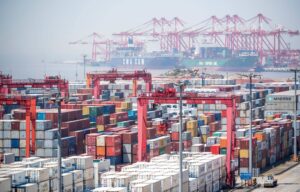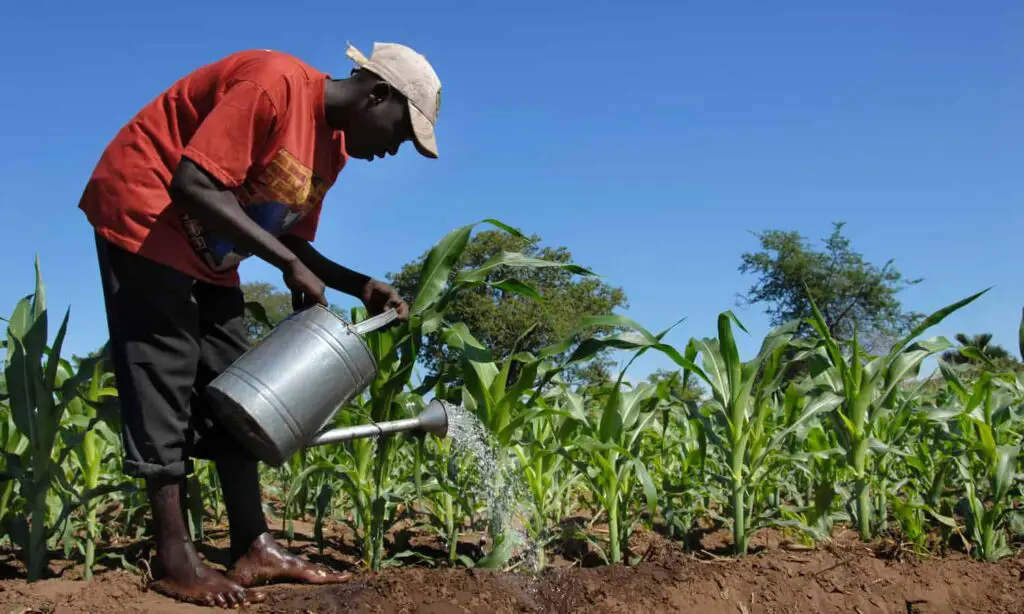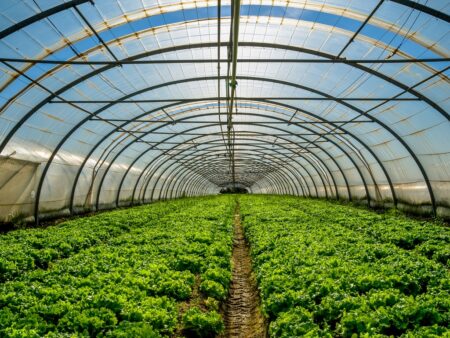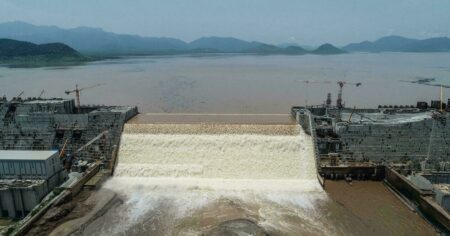- Irrigation in Africa has the potential to essentially double agricultural productivity.
- In Sub-Saharan Africa, irrigation is a key factor in achieving food security, yet it remains vastly under-utilised.
- FAO advises that each African country assess its irrigation potential as the basis for planning sustainable food production.
Irrigation in Africa has the potential to essentially double agricultural productivity, boosting output by up to 50 per cent. This optimistic evaluation is provided by the UN Food and Agriculture Organisation (FAO). However, even with this potential, FAO shares concerns that it is vastly underutilized, with agriculture in Africa remaining predominantly rain-fed.
“Although irrigation in Africa has the potential to boost agricultural productivity by at least 50 percent, food production on the continent is almost entirely rainfed,” reports FAO.
According to FAO data, the area under irrigation in Africa currently makes up just 6 percent of the total cultivated area. In Sub-Saharan Africa, irrigation is a key factor in achieving food security, yet it remains vastly under-utilized.
“While nearly 40 per cent of the world’s agricultural production comes from irrigated land, the figure for sub-Saharan Africa is only 10 per cent,” FAO laments.
So why is Africa lagging behind? The potential is clear, yet implementation is minimal. FAO hypothesizes that irrigation is under-utilized in Africa “owing to the state of underdevelopment of water management infrastructure.”
FAO advises that each African country assess its irrigation potential as the basis for planning sustainable food production. Regional blocs must then collaborate to agree on the equitable use of shared water resources.
“The regional dimension of African water resources requires an approach ensuring consistency both within the country and among countries within each river basin,” FAO acknowledges.
Read also: COP28 failures: Climate change undermines Africa’s food security
Irrigation in Africa: Zimbabwe’s Success Story
The government of Zimbabwe has demonstrated unwavering commitment to strengthening its agriculture resilience to climate change by adopting irrigation for sustainable farming. The Ministry of Lands, Agriculture, Fisheries, Water, and Rural Development has reassured farmers of irrigation infrastructure support to boost yields year-round.
The government has introduced a new policy strategy under the Agricultural and Food Systems Transformation Strategy to accelerate irrigation development in the country in collaboration with the Zimbabwe National Water Authority (ZINWA).
“It is critical for the country to invest in the construction of water reservoirs such as dams and weirs to ensure water for irrigation is readily accessible,” asserts Professor Obert Jiri, the ministry’s permanent secretary.
The government is calling on the private sector to invest in irrigation systems to climate-proof agriculture. Irrigation schemes like the Zvavachari Irrigation Scheme in Mberengwa District are examples of how irrigation is spearheading rural development and industrialization.
Seed Co’s Head of Agronomy, Mrs. Wendy Madzura, agrees that irrigation should be adopted by all farmers, no matter the size of their fields, emphasizing the importance of investing in irrigation technologies for commercial farmers.
Looking Ahead: Partnerships with private sector needed
Zimbabwe, under its National Development Strategy 1 (NDS1) and the Agricultural and Food Systems Transformation Strategy, plans to increase the area under irrigation to 350,000 hectares by 2025. This goal will require partnerships with the private sector, as irrigation development is capital intensive.
Engineer Bezel Chitsungo, Director of the Department of Irrigation Development, notes that the country has the potential to irrigate up to two million hectares of land if all existing dams and those under construction are fully utilized.
In conclusion, unlocking the potential of irrigation in Africa requires strategic planning, investment, and collaboration between governments, regional blocs, and the private sector. With the right approach, irrigation can play a significant role in ensuring food security and boosting agricultural productivity across the continent.











